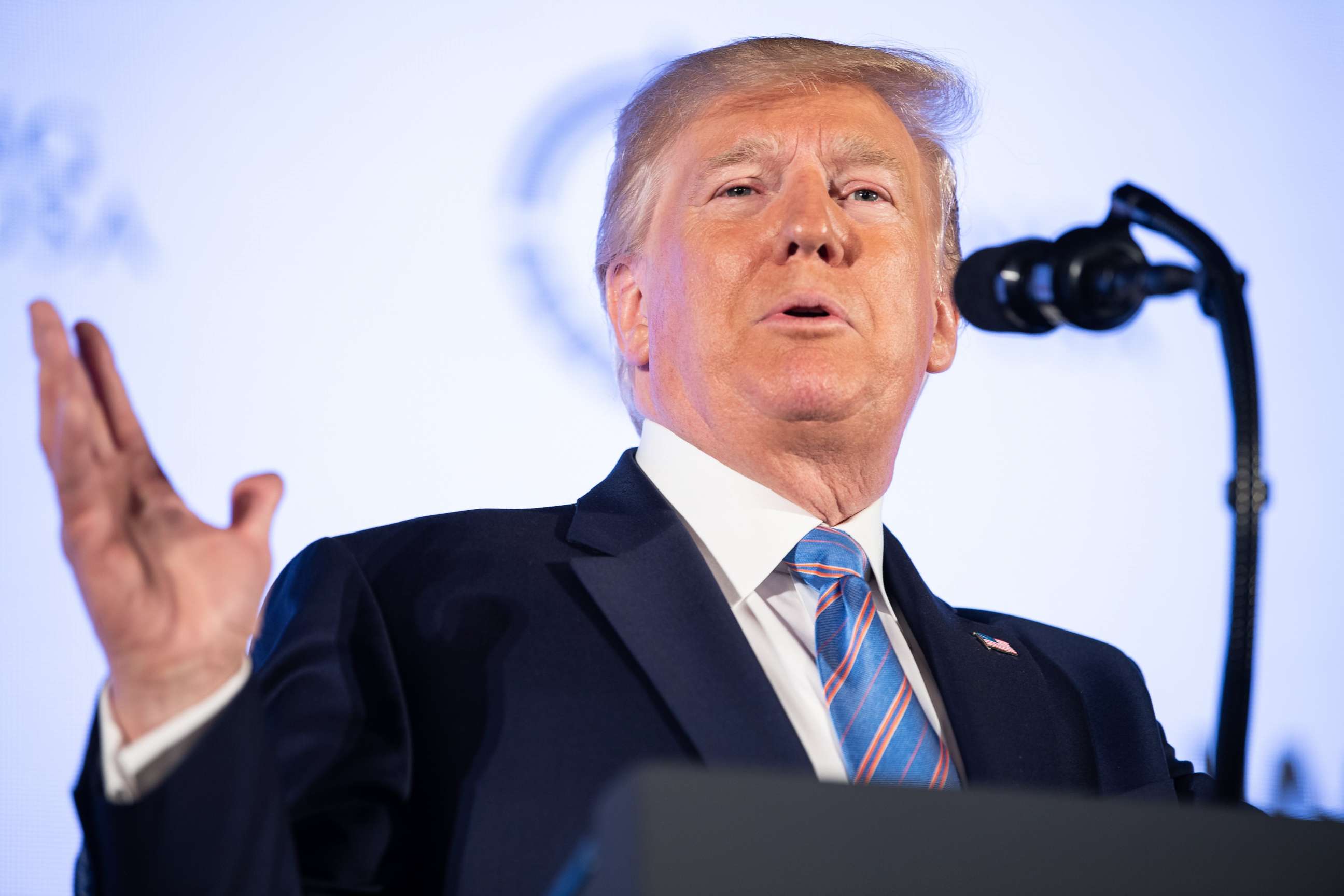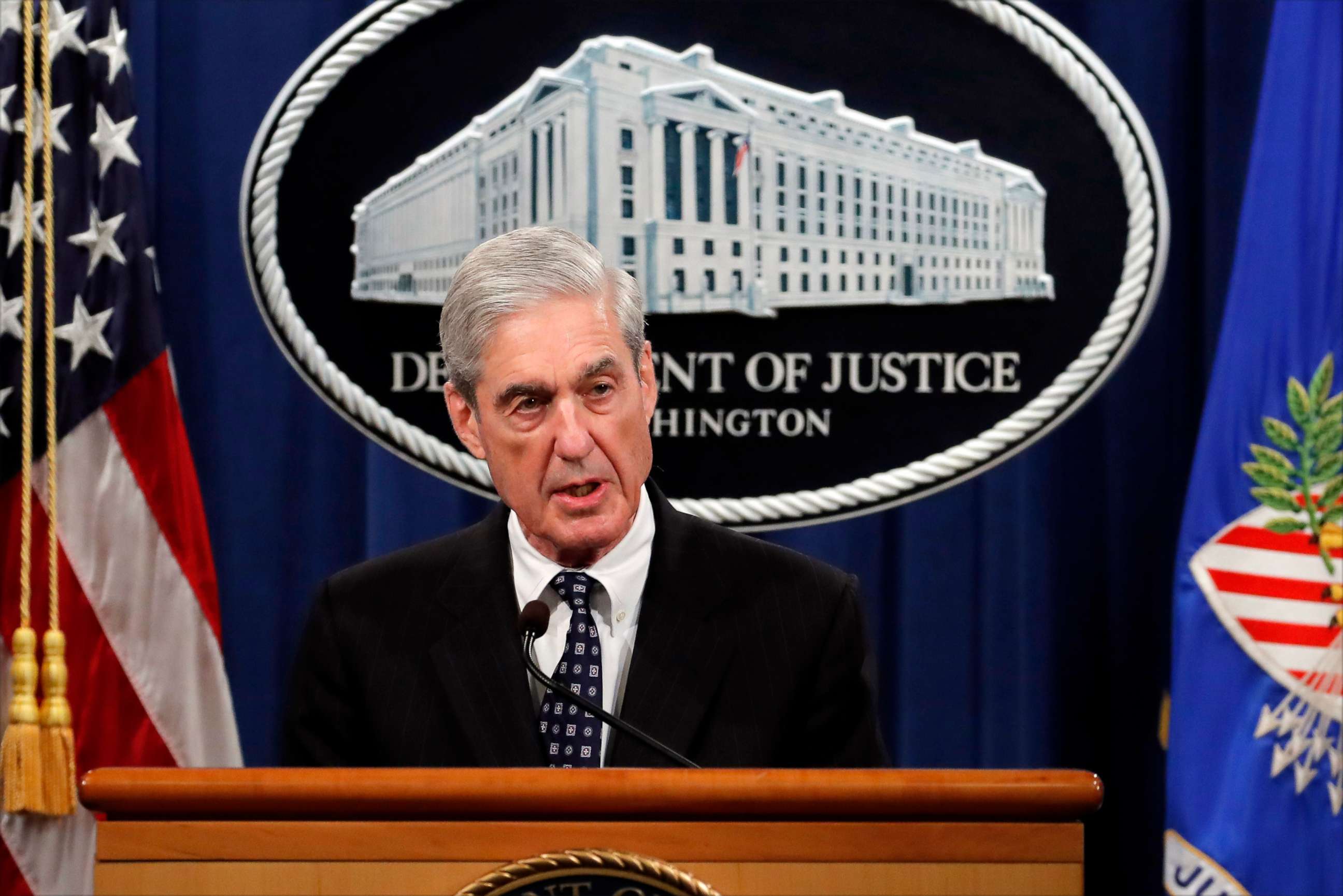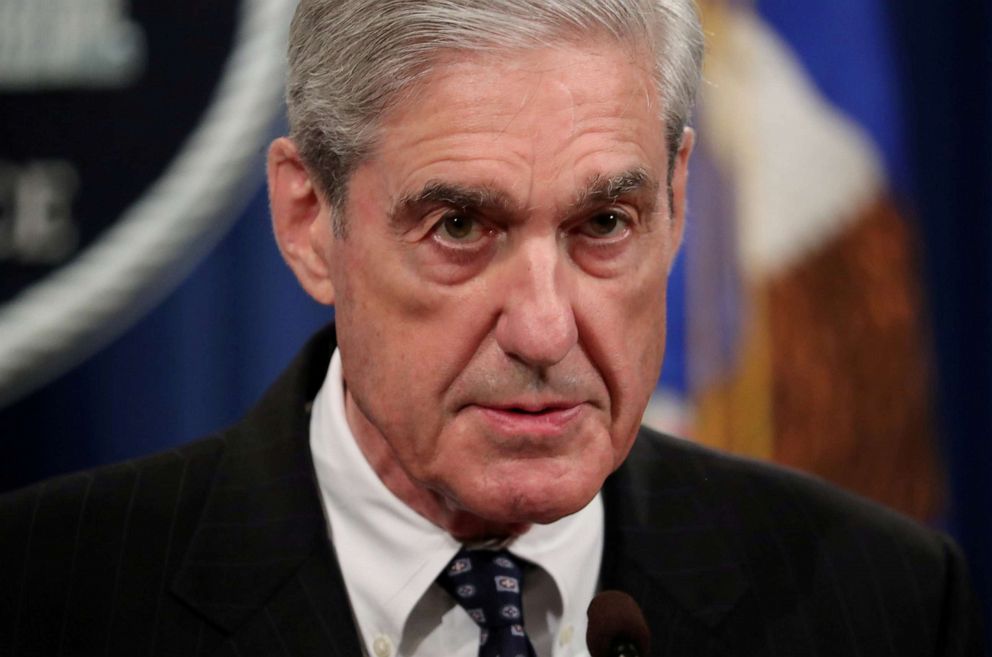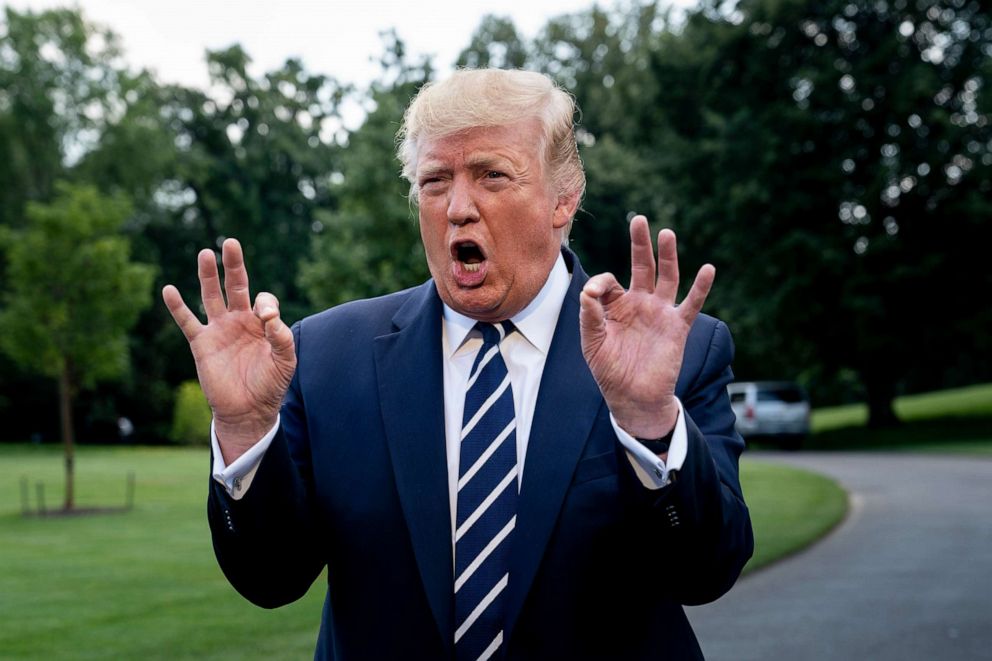A look at Trump's relentless mudslinging at Mueller
Trump has attacked Muller and the Russian investigation for more than two years.
His attacks on Robert Mueller and his investigation have been relentless -- almost daily for two years -- and Tuesday, the day before Mueller was set to testify on Capitol Hill, was no exception.
President Donald Trump once again called the probe a "witch hunt" and repeated his mantra of "No collusion" and "no obstruction."

Speaking to a conservative youth organization, Turning Point USA, the president said, “They have no collusion."
"They did a report, and there was no obstruction,” he continued, even though Mueller's report outlined several potential instances of obstruction of justice.
Trump has been both on the offensive and the defensive since the inquiry into Russian interference began in 2017 through the release of Mueller's report in April -- and now ahead of his testimony.
He’s fired off angry tweets almost daily and attacked Mueller in both photo-ops and interviews, all part of a strategy to discredit his probe.
As Mueller’s investigation heated up, so, too, did the president’s attacks -- increasingly on Mueller personally.
In the months leading up to the release of the Mueller report, Trump characterized Mueller as a “man out of the blue” who has “conflicts of interest” because of what Trump said is a “nasty and contentious business relationship,” a false claim he repeated on Monday.
"Robert Mueller, I know he's conflicted -- he had a lot -- there's a lot of conflicts that he's got, including the fact that his best friend is Comey," he said at a White House photo-op, referring to former FBI Director Jame Comey, whom Trump fired. "But he's got conflicts with me, too. He's got big conflicts with me. As you know, he wanted the job of the FBI Director. He didn’t get it. And we had a business relationship where I said, "No." And I would say that he wasn’t happy. Then, all of a sudden, he gets this position. But you know what? He still ruled -- and I respect him for it -- he still ruled "no collusion, no obstruction."

In fact, however, Mueller didn’t come “out of the blue” as the president stated, but was instead appointed by then-Deputy Attorney General Rod Rosenstein because Trump's then-attorney general, Jeff Sessions, recused himself due to conflict of interest.
In regard to a potential “conflict of interest,” The New York Times reported in January that Trump has cited a private dispute with Mueller over dues at Trump's golf club in Sterling, Virginia, as one potential conflict that would disqualify him serving as special counsel.
After Mueller's appointment in May 2017, the Department of Justice released a statement confirming that ethics experts reviewed his appointment and "determined that Mr. Mueller’s participation in the matters assigned to him is appropriate."
Once Attorney General William Barr released his preliminary version of the report's "principal conclusions" in March saying there was no clear accusation of criminal wrongdoing, Trump seemed to change his tone toward the special counsel whom he had previously described as “disgraced” and a “liar.”
"Do you think Robert Mueller acted honorably?” ABC News Chief White House Correspondent Jon Karl asked the president in March during an event with Israeli Prime Minister Benyamin Netanyahu. "Yes, he did," Trump responded.

Asked at an Oval Office photo-op a few minutes later if he still believed the investigation was a "witch hunt," Trump said it ended the way it should have but went on for far too long. Trump added that no other president should have to face an investigation like it ever again.
According to a New York Times accounting, Trump attacked Mueller and the Russia investigations more than 1,100 times over two years.
But if anyone thought the personal attacks on Mueller would cease, the president has proved them wrong.
When Mueller decided to break his silence in May, explaining he did not have the "option" of charging the president and saying “If we had had confidence that the president clearly did not commit a crime, we would have said so,” Trump launched into personal attack mode yet again.
"I think Mueller is a true never-Trumper. He's somebody that dislikes Donald Trump," Trump said, in some of his harshest language up to that point, suggesting Mueller had political motivations.
Just hours after word came that Mueller agreed to Democratic demands that he testify before Congress in public, Trump again labeled Mueller's investigation a "witch hunt" and a "hoax" and accused him of illegally handling the derogatory text messages exchanged between former FBI agent Peter Strzok and former FBI lawyer Lisa Page, saying Mueller had "terminated" the messages, calling that "illegal."

Has Trump's attack strategy worked to sway public perception?
According to an ABC News/Washington Post poll in April, after the Mueller report was released, just 31% of Americans thought the report had cleared Trump of all wrongdoing, as Trump claimed. Fifty-three percent said it did not.
The president's attacks on Mueller are unlikely to actually change anyone’s views, Dartmouth College public opinion professor Mia Costa told ABC News. But political science is clear: people take cues from politicians in charge.
“Public trust in the investigation was always going to be divided along partisan lines, with Republicans opposing it more than they support it and vice versa for Democrats,” Costa said.
“However, consistent rhetoric about the investigation could deepen the partisan divide on the issue; people take cues from political elites and the more it is on the public's consciousness, the more it becomes a salient issue to feel strongly about,” she said.




